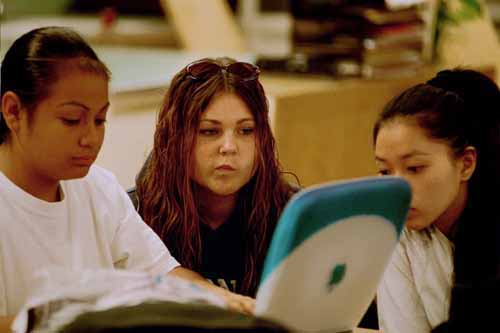| Research Cycle |
|
|
|
| Vol 9|No2|December|2012 | |
Grazing the Net
Raising a Generation of Range Free Students
 |
|
Eighteen Years Later When I first wrote this article, the promise of the Internet to transform classrooms, schools and learning was trumpeted far and wide, and yet three decades later we see little progress in the USA with regard to student comprehension skills, knowledge or writing as measured by the National Assessment of Educational Progress. Failure to address and fund professional and program development is largely the reason for these dismal results along with a tendency toward technology for the sake of technology. Introduction Gathered around a classroom computer monitor, three students are exploring the Internet — a global network linking them to vast databases, immense archives, rich art collections and millions of users.
Is this a good thing for schools? The potential is amazing. An impressive information harvest is just within our grasp. Suddenly we might have all the cultural treasures and the best ideas of human civilization available within a simple mouse click — provided someone digitizes and shares them. Schools across North America are rushing to network. Governments and corporations hasten forward with grant support, advice, encouragement, pressure and products. The Internet is sold as the bridge to the future. Few dare to raise concerns or to challenge the royal tailors as weavers run cable from classroom to classroom. The "wired school" is all the rage. Access to the Electronic Highway becomes a priority. To continue reading, download a PDF file version of this chapter, or even better, go to the iBookstore and download the new book or the free five chapter sample for your iPad.
|
|
Copyright Policy: Materials published in The Question Mark may be duplicated in hard copy format if unchanged in format and content for educational, nonprofit school district and university use only and may also be sent from person to person by email. This copyright statement must be included. All other uses, transmissions and duplications are prohibited unless permission is granted expressly. Showing these pages remotely through frames is not permitted. FNO Press is applying for formal copyright registration for articles.
|
|



